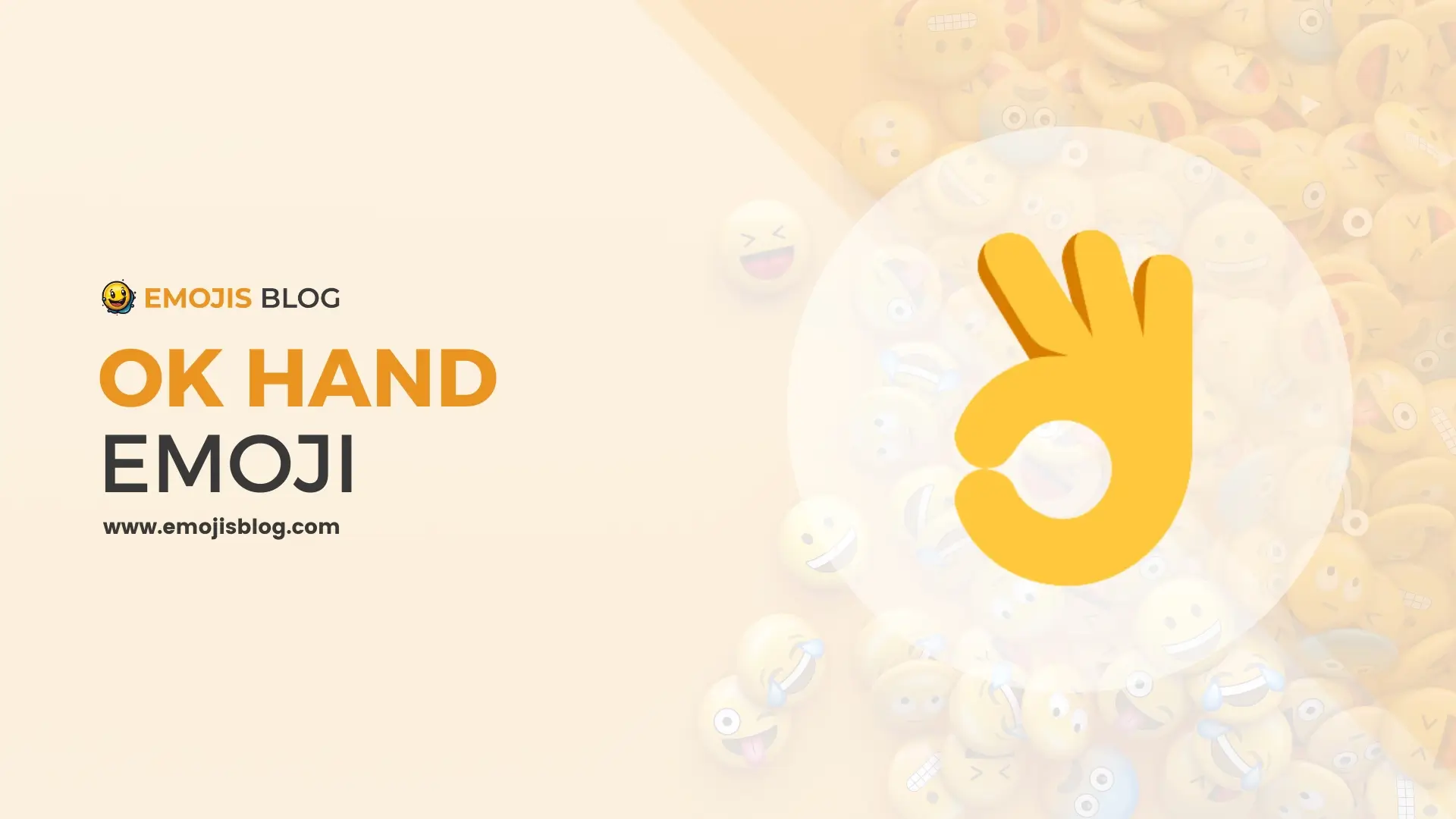What Does The OK Hand Emoji Mean 👌
👌
What’s OK Hand Emoji 👌?
The “OK” emoji, represented by the 👌 symbol, is a versatile and widely recognized digital icon used to express agreement, approval, or that everything is satisfactory. Originating from a hand gesture commonly used in Western cultures, this emoji has been adopted globally in digital communication, albeit with varying interpretations across different cultural contexts. While generally conveying a positive sentiment, its meaning can shift based on the conversation’s tone, ranging from genuine affirmation to sarcasm or irony. The emoji’s simplicity in representing complex responses makes it a popular choice in texting and social media, though users should be mindful of its potential for misinterpretation in diverse cultural settings.
Technical Information
| Attribute | Details |
|---|---|
| Emoji | 👌 |
| Unicode | U+1F44C |
| Description | Represents the “OK” hand gesture. |
| Introduced in | Unicode 6.0 (2010) |
| Also Known As | OK Hand Sign, Perfect Hand Sign |
| Category | People & Body |
| Subcategory | Hand Fingers Partial |
| Skin Tones Supported | Yes (Light, Medium-Light, Medium, Medium-Dark, Dark) |
| Platforms Supported | iOS, Android, Windows, macOS, and others |
| Shortcode | :ok_hand: (in platforms like Slack, GitHub) |
Understanding the Ok Emoji: A Comprehensive Guide to the 👌 Symbol
In the digital age, emojis have become a universal language, transcending cultural and linguistic barriers. Among these, the “OK” emoji, represented by the 👌 symbol, has gained widespread popularity. This article delves into the origins, meanings, and cultural significance of the 👌 emoji.
Origins of the 👌 Emoji
Historical Background
The 👌 emoji, also known as the “OK” or “Perfect” hand gesture, has roots in several cultures. Historically, it is believed to have originated as a gesture in Western countries, symbolizing agreement or approval.
Digital Adoption
With the advent of digital communication, this gesture was adopted into the emoji lexicon, becoming a standard symbol in various messaging platforms and social media.
Meanings and Interpretations
General Usage
In its most common usage, the 👌 emoji signifies approval, agreement, or that everything is fine. It’s often used in response to a question or statement to convey that the sender is okay with the content or situation.
Cultural Variations
It’s important to note that the meaning of the 👌 emoji can vary significantly across different cultures. In some countries, it may have offensive connotations, while in others, it’s seen as a positive and affirming sign.
Contextual Significance
The interpretation of the 👌 emoji can also depend on the context in which it’s used. It can convey different emotions like sarcasm, irony, or humor, depending on the conversation’s tone.
The Emoji in Digital Communication
Usage in Texting and Social Media
The 👌 emoji is widely used in texting and on social media platforms. It serves as a quick and effective way to respond to messages, often replacing long sentences.
Impact on Digital Etiquette
The adoption of emojis like 👌 has transformed digital etiquette, introducing new ways to express emotions and reactions in a concise manner. It’s essential to understand the emoji’s context and cultural implications to avoid miscommunication.
Controversies and Misinterpretations
Misuse and Misunderstandings
Due to its varying meanings, the 👌 emoji has been at the center of several controversies and misunderstandings. It’s crucial to be aware of the cultural sensitivities surrounding its use.
The Emoji in Popular Culture
The 👌 emoji has also found its way into popular culture, often featured in memes, digital art, and even merchandise. This reflects its widespread recognition and diverse interpretations.
Conclusion
The 👌 emoji is more than just a digital icon; it’s a symbol rich in history and cultural significance. Its ability to convey a range of emotions and responses in a single gesture makes it a powerful tool in digital communication. However, it’s essential to use it wisely, considering its varied interpretations across different cultural contexts. As emojis continue to evolve, understanding their meanings and implications remains a key aspect of effective digital communication.

